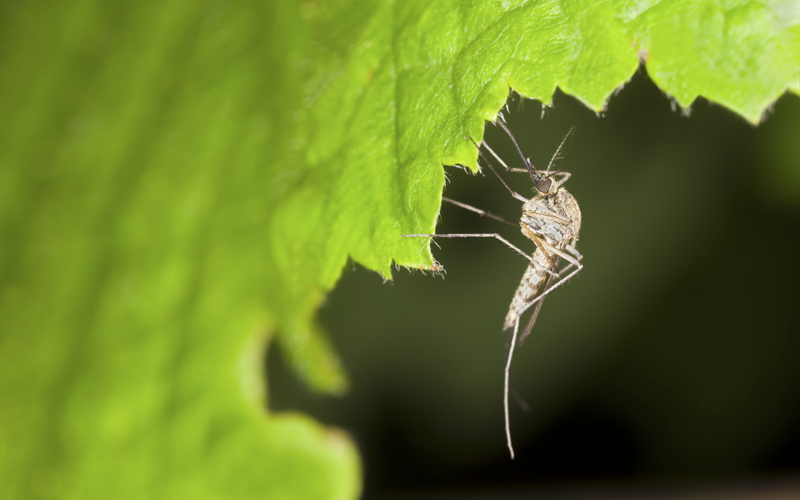
by guest blogger Courtney Pineau, associate director of the Non-GMO Project
In GMO news, 2015 has started off with a bang. From Arizona considering mandatory labeling of products containing genetically modified organisms to the recently released Nielsen’s Global Health and Wellness Survey, which showed that younger people are continuing to seek out organic and non-GMO products, there are many indicators that the movement to provide GMO transparency for consumers and to protect our food supply is continuing to gain momentum.
On the other hand, there has also been plenty of news that reminds our team at the Non-GMO Project that there is more work to be done. Earlier this month, it was announced that millions of genetically engineered mosquitoes would be released into the Florida Keys if British researchers win approval to use the insects in the battle against dengue fever and chikungunya. There’s also ongoing media coverage of the political pressure countries around the world feel to adopt a more liberal policy toward GMOs in their food supply. These news stories are a constant reminder that the Non-GMO Project’s mission of protecting our non-GMO future is of critical importance.
Here are 5 reasons to support a non-GMO future:
1. GMOs have not been thoroughly tested. While we often hear about the rigorous testing that GMOs must go through before being approved for the food supply, the reality is this testing is conducted by the same companies that create these genetically engineered crops or by biotech-affiliated researchers. At this time, there are no after-market studies, and if an independent researcher wants to do studies on GMOs they must get approval from the company that holds the patent on the organism—and get their approval again before they release their results.
2. We may be opening Pandora’s box. The long-term impacts of GMOs are unknown, and once released into the environment, these novel organisms cannot be recalled. In many cases, genetically engineered crops readily cross-pollinate with other crops, and contamination can occur in the seed supply and post-harvest during transportation, processing, and storage. A report released by Food and Water Watch in 2014 noted that 30 percent of organic farmers surveyed have dealt with contamination issues from GMOs, and many have experienced significant financial loss due to the impact on the integrity and quality of their organic crops.
3. A scientific consensus is lacking. One of the common myths about GMOs is that there is broad scientific consensus on their safety. However, an assessment of the statements made by the World Health Organization (WHO), the America Medical Association (AMA), and the National Academy of Sciences (NAS) reflects a general tone of neutrality and precaution about making overarching safety claims. For instance, the WHO says, “It is not possible to make general statements on the safety of all GM foods.” This is a similar statement to that of NAS: “There remain sizeable gaps in our ability…to devise appropriate scientific methods to predict and assess unintended adverse effects on human health.” Both the AMA and the WHO state the need for post-market monitoring and risk assessments, however these evaluations are not occurring at this time.
4. Consumers do not have a chance to make an informed choice about consuming GMOs. More than 60 countries around the world have mandatory labeling and significant restrictions or outright bans on the production and sale of GMOs in place. Consumers in the United States and Canada, however, are not given an informed choice about the GMOs in the products they purchase. In the absence of mandatory labeling, consumers are in the dark about whether the food they buys contain GMOs unless they purchase certified-organic or Non-GMO Project Verified products. Consumers have a right to know what is in the food they eat and feed their families.
5. We need to exercise the precautionary principle. No long-term or independent feeding studies have been conducted to understand the full health impacts of GMOs. More than 80 percent of all GMOs grown worldwide are engineered for herbicide tolerance and/or to produce their own insecticide. As a result, the use of glyphosate has increased fifteenfold since the introduction of GMOs. GMO crops are also responsible for the emergence of “superweeds” and “superbugs,” as well as the loss of plant diversity. Consumers are deeply concerned about the potential impacts on our health and on our environment of these experimental organisms.
 Courtney Pineau is the associate director of the Non-GMO Project. From the time she was a young child, Courtney’s two favorite places to play and explore have been the kitchen and the garden. Her passion for growing food and nourishing the people she loves has inspired her ongoing commitment to ensuring that all people have access to safe and healthy food.
Courtney Pineau is the associate director of the Non-GMO Project. From the time she was a young child, Courtney’s two favorite places to play and explore have been the kitchen and the garden. Her passion for growing food and nourishing the people she loves has inspired her ongoing commitment to ensuring that all people have access to safe and healthy food.




Thank you for all your work with the Non-GMO Project. I look for that label on everything I buy and if it isn’t there, I don’t buy it. Please don’t get discouraged, we need more people like you who are willing to fight this battle against GMO’s and keep us healthy. I really do appreciate all your hard work and dedication!!